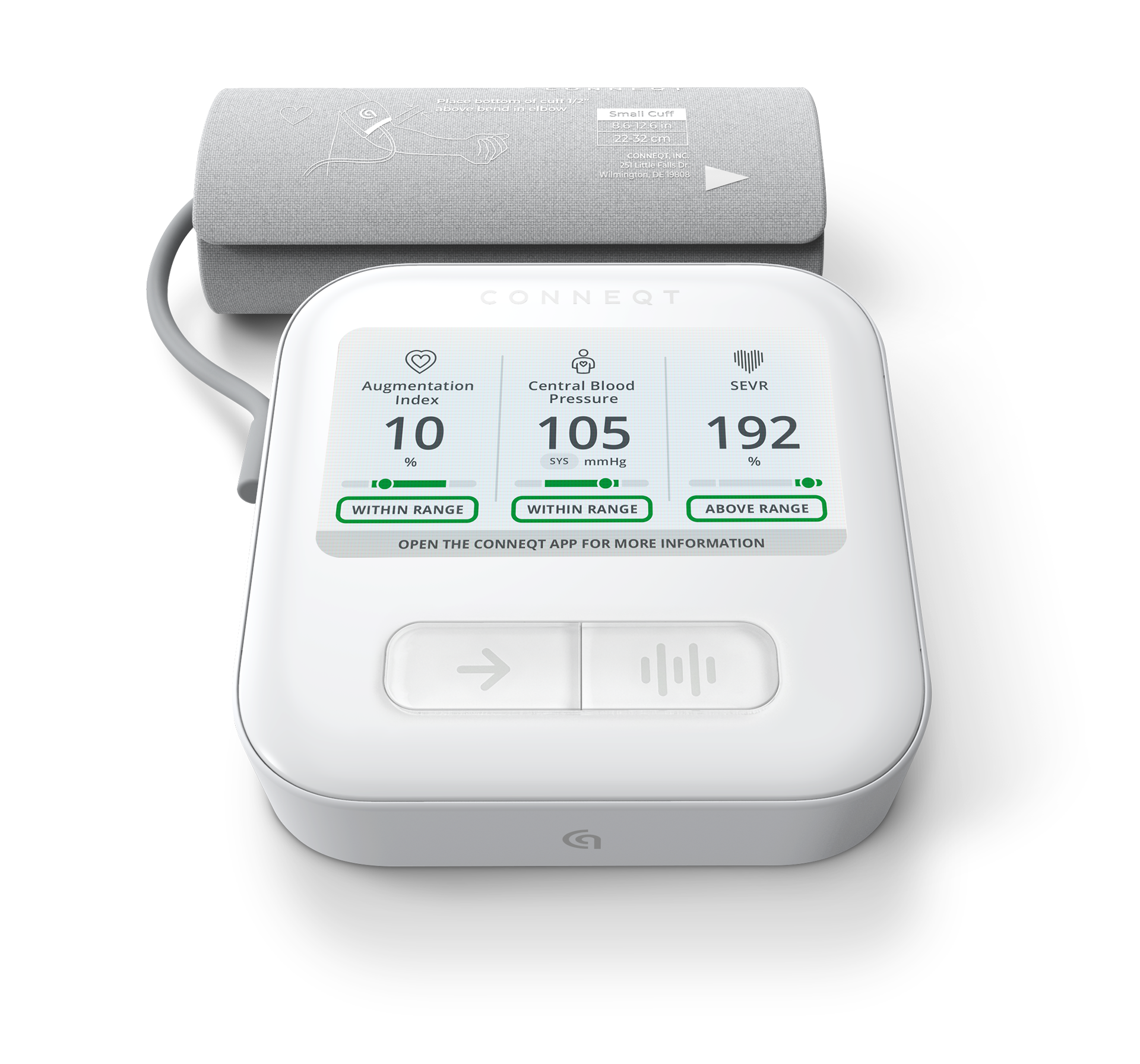Athletes constantly push their bodies to the limit in pursuit of excellence. While training programs often focus on building strength, speed, and endurance, an often-overlooked factor in achieving peak performance is arterial health. Advanced metrics like Subendocardial Viability Ratio (SEVR), Augmentation Index (AIx), and Central Blood Pressure (CBP) are transforming how athletes and their support teams understand and optimize cardiovascular performance and recovery.
Why Arterial Health Matters for Athletes
Arterial health is a cornerstone of athletic performance. Healthy arteries ensure that oxygen and nutrients reach muscles efficiently, enhancing stamina, recovery, and endurance. Advanced metrics like SEVR, AIx, and CBP go beyond traditional blood pressure or heart rate measures to offer deeper insights into vascular function.

Measure what matters
Save 20% on checkout with code VITALITY
- Subendocardial Viability Ratio (SEVR): Measures the heart’s ability to balance oxygen supply and demand, providing a snapshot of how well it can handle stress during exercise.
- Augmentation Index (AIx): Reflects arterial stiffness and the workload placed on the heart, offering critical data about vascular flexibility and efficiency.
- Central Blood Pressure (CBP): Evaluates the pressure in the aorta, providing a more accurate representation of cardiovascular strain than traditional arm-cuff blood pressure measurements.
These metrics allow athletes to optimize their training and recovery, reduce the risk of overtraining, and safeguard long-term cardiovascular health.
How Arterial Health Impacts Athletic Performance
Arterial health is a critical yet often overlooked factor in athletic performance, influencing how efficiently oxygen is delivered to muscles, how quickly the body recovers, and the overall resilience of the cardiovascular system under strain. Flexible, healthy arteries are essential for optimizing oxygen transport, enhancing endurance, and aiding in the swift removal of metabolic byproducts post-exercise. These functions not only improve recovery but also minimize strain on the heart, reducing the risk of overtraining and long-term cardiovascular issues. Conversely, arterial stiffness or impaired vascular function can hinder performance, slow recovery, and increase the likelihood of injury.
The Link Between Arterial Health and Peak Athletic Performance
Research into the cardiovascular efficiency of athletes has shown how arterial health underpins performance. A study found that people with high aerobic fitness put less strain on their hearts, both when resting and during exercise, meaning their hearts work more efficiently and experience less stress. This efficiency highlights the benefits of aerobic training in promoting arterial health and resilience, making it a key focus for athletes aiming to maintain peak physical condition.
The importance of exercise intensity in maintaining arterial flexibility is equally significant. The Maastricht Study demonstrated that higher-intensity physical activity, whether performed consistently throughout the week or in sporadic bursts, effectively reduces arterial stiffness. This finding underscores the value of prioritizing intensity over sheer volume in training, offering athletes a pathway to balance rigorous schedules while preserving vascular health.
However, the demands of intense physical activity, particularly in high-impact sports, can place substantial strain on the vascular system. Longitudinal research on American football players at Emory University highlighted progressive aortic root dilatation associated with the sport’s cardiovascular demands. This underscores the need for monitoring vascular changes over time and implementing recovery-focused strategies to mitigate potential risks.
The evidence is clear: arterial health is not just a contributor to athletic performance but a foundation for sustained excellence and long-term cardiovascular well-being. By incorporating aerobic conditioning, optimizing training intensity, and routinely assessing vascular metrics, athletes can unlock their full potential while safeguarding their health for years to come.
Strategies for Optimizing Arterial Health in Athletes
- Baseline Monitoring: Athletes should undergo arterial health assessments at the start of each training cycle. Tools like SphygmoCor provide reliable measures of SEVR, AIx, and CBP, offering valuable insights into cardiovascular efficiency.
- Recovery-Centric Training: Incorporating activities that promote vascular health, such as yoga, moderate-intensity aerobic exercise, and active recovery days, can help maintain arterial flexibility and improve recovery metrics like SEVR.
- Personalized Training Adjustments: By tracking AIx and CBP, coaches can tailor training intensities to enhance arterial health. For example, reducing training loads during periods of elevated arterial stiffness can prevent long-term cardiovascular strain.
- Diet and Hydration: A diet rich in antioxidants, omega-3 fatty acids, and potassium, combined with adequate hydration, supports arterial elasticity and reduces stiffness.
- Regular Assessments: Continuous monitoring of SEVR, AIx, and CBP throughout the season ensures athletes stay within healthy cardiovascular ranges, optimizing performance and reducing risks.
Elevate Performance with Advanced Arterial Insights
Arterial health is more than a measure of cardiovascular fitness—it’s a vital determinant of an athlete’s ability to perform and recover at the highest levels. By integrating advanced metrics like SEVR, AIx, and CBP into training and recovery protocols, athletes can achieve their full potential while minimizing long-term cardiovascular risks.






